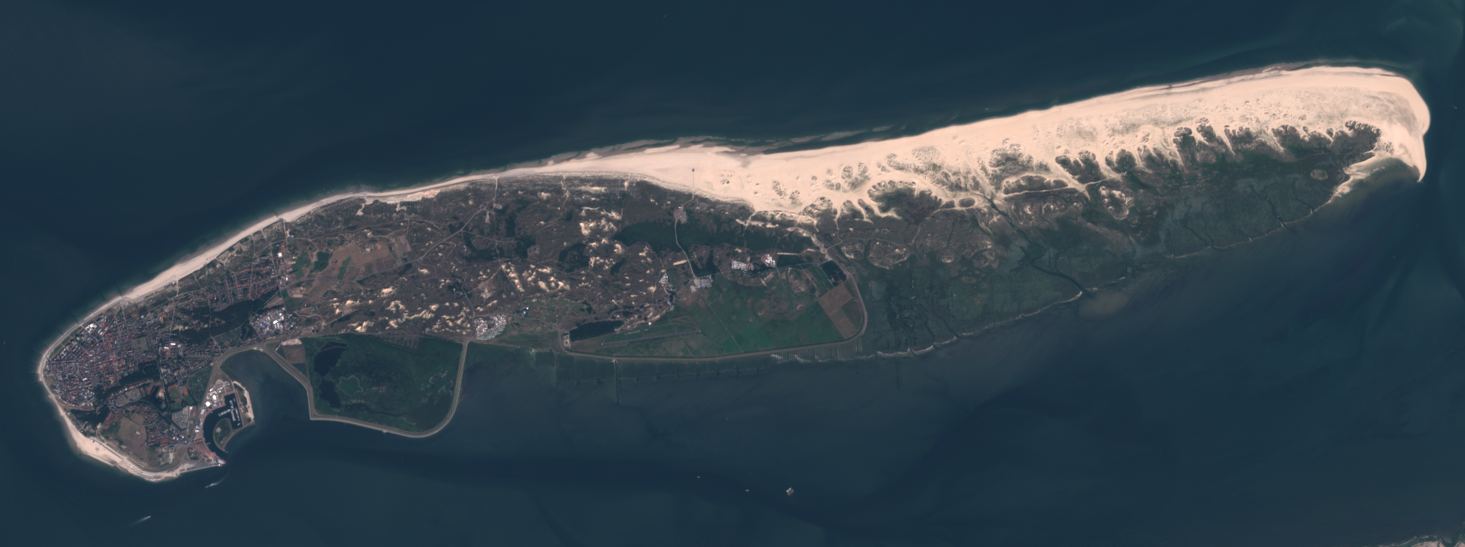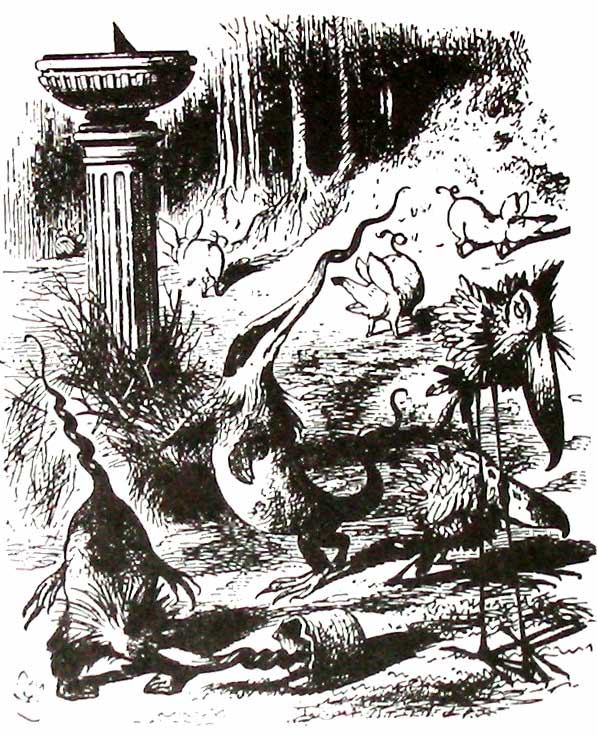|
Logik (poem)
Logik is one of the most recited poems of the German poet and painter Joachim Ringelnatz (1883–1934). Poem Logik Die Nacht war kalt und sternenklar, Da trieb im Meer bei Norderney Ein Suahelischnurrbarthaar.— Die nächste Schiffsuhr wies auf drei. Mir scheint da mancherlei nicht klar, Man fragt doch, wenn man Logik hat, Was sucht ein Suahelihaar Denn nachts um drei am Kattegat? Translation Logic The night was starry, cold the air. There in the sea near Norderney Swam a Swahili mustache hair.— The next ship clock points to three. A couple of things don't seem clear. Hence one asks with logic mind-set What is a Swahili hair doing here? At three o'clock on the Kattegat ? ''Translated by Natias Neutert'' Literary-historical classification Genesis Logik was written in the time after the turn of the century, and first published 1912 under Joachim Ringelnatz’s real name Hans Böttcher in his book ''Die Schnupftabakdose'' (The snuffbox) ... [...More Info...] [...Related Items...] OR: [Wikipedia] [Google] [Baidu] |
Hugo Erfurth - Portrait Joachim Ringelnatz, C
Hugo or HUGO may refer to: Arts and entertainment * ''Hugo'' (film), a 2011 film directed by Martin Scorsese * Hugo Award, a science fiction and fantasy award named after Hugo Gernsback * Hugo (franchise), a children's media franchise based on a troll ** ''Hugo'' (game show), a television show that first ran from 1990 to 1995 ** ''Hugo'' (video game), several video games released between 1991 and 2000 * Hugo (album), a 2022 album by Loyle Carner People and fictional characters * Victor Hugo, a French poet, novelist, and dramatist of the Romantic movement. * Hugo (name), including lists of people with Hugo as a given name or surname, as well as fictional characters * Hugo Cabral (born 1988), Brazilian footballer * Hugo Chávez, president of Venezuela 1999-2013 * Hugo Gernsback, Luxembourgish American publisher (born 1884) * Hugo (musician), Thai American actor and singer-songwriter Chula Chak Charbonnages (born 1981) * Hugo (footballer, born 1964), Brazilian footballer * Hugo ( ... [...More Info...] [...Related Items...] OR: [Wikipedia] [Google] [Baidu] |
Germany
Germany, officially the Federal Republic of Germany, is a country in Central Europe. It lies between the Baltic Sea and the North Sea to the north and the Alps to the south. Its sixteen States of Germany, constituent states have a total population of over 84 million in an area of , making it the most populous member state of the European Union. It borders Denmark to the north, Poland and the Czech Republic to the east, Austria and Switzerland to the south, and France, Luxembourg, Belgium, and the Netherlands to the west. The Capital of Germany, nation's capital and List of cities in Germany by population, most populous city is Berlin and its main financial centre is Frankfurt; the largest urban area is the Ruhr. Settlement in the territory of modern Germany began in the Lower Paleolithic, with various tribes inhabiting it from the Neolithic onward, chiefly the Celts. Various Germanic peoples, Germanic tribes have inhabited the northern parts of modern Germany since classical ... [...More Info...] [...Related Items...] OR: [Wikipedia] [Google] [Baidu] |
Joachim Ringelnatz
Joachim Ringelnatz is the pen name of the German author and painter Hans Bötticher (7 August 1883 in Wurzen, Saxony – 17 November 1934 in Berlin). From 1894 to 1900 he lived with his family in the Gottschedstrasse 40 in Leipzig. Profile His pen name ''Ringelnatz'' is usually explained as a dialect expression for an animal, possibly a variant of ''Ringelnatter'', German for grass snake or more probably the seahorse for winding ("ringeln") its tail around objects. The seahorse is called Ringelnass (nass = wet) by mariners, an occupation to which he felt kinship. He was a sailor in his youth and spent the First World War in the Navy on a minesweeper. In the 1920s and 1930s, he worked as a ''Kabarettist'', a kind of satirical stand-up comedian. He is best known for his wry poems using word play and sometimes bordering on nonsense poetry. Some of them are similar to Christian Morgenstern's, but more satirical in tone and occasionally subversive. His most popular character ... [...More Info...] [...Related Items...] OR: [Wikipedia] [Google] [Baidu] |
Norderney
Norderney (; ) is one of the seven populated East Frisian Islands off the North Sea coast of Germany. The island is , having a total area of about and is therefore Germany's ninth-largest island. Norderney's population amounts to about 5,850 people. In 1946 Norderney gained municipal status and belongs to the Aurich "Kreis" (county). On the northern side of the island lies a long sandy beach. The neighbouring island to the east is Baltrum, which lies about 800m (half a mile) away beyond the Wichter Ee. To the west is the island of Juist, about away on the other side of the Norderneyer Seegatt. The entire eastern half of Norderney belongs to the Lower Saxon Wadden Sea National Park. Access to the park is restricted, as it is subdivided in zones of different accessibility for the protection of the wildlife. The status as a National Park also affects all types of traffic on the island, while especially car traffic is subject to strict regulations. The mainland is easily ... [...More Info...] [...Related Items...] OR: [Wikipedia] [Google] [Baidu] |
Swahili People
The Swahili people (, وَسوَحِيلِ) comprise mainly Bantu, Afro-Arab, and Comorian ethnic groups inhabiting the Swahili coast, an area encompassing the East African coast across southern Somalia, Kenya, Tanzania, and northern Mozambique, and various archipelagos off the coast, such as Zanzibar, Lamu, and the Comoro Islands. The original Swahili distinguished themselves from other Bantu peoples by self-identifying as Waungwana (the civilised ones). In certain regions, such as Lamu Island, this differentiation is even more stratified in terms of societal grouping and dialect, hinting at the historical processes by which the Swahili have coalesced over time. More recently, through a process of Swahilization, this identity extends to any person of African descent who speaks Swahili as their first language, is Muslim, and lives in a town of the main urban centres of most of modern-day Tanzania and coastal Kenya, northern Mozambique, or the Comoros. The name ''Swahili' ... [...More Info...] [...Related Items...] OR: [Wikipedia] [Google] [Baidu] |
Kattegat
The Kattegat (; ; ) is a sea area bounded by the peninsula of Jutland in the west, the Danish straits islands of Denmark and the Baltic Sea to the south and the Swedish provinces of Bohuslän, Västergötland, Halland and Scania in Sweden in the east. The Baltic Sea drains into the Kattegat through the Danish straits. The sea area is a continuation of the Skagerrak and may be seen as a bay of the North Sea and North Atlantic Ocean, though this is not the case in traditional Scandinavian usage. The Kattegat is a rather shallow sea and can be dangerous to navigate due to many sandy, stony reefs and the tricky shifting currents. In modern times, artificial seabed channels have been dug, many reefs have been dredged either by sand pumping or boulder clearance, and a well-developed light signaling network has been installed to protect the heavy international traffic on this small sea. There are several large cities and major ports on the Kattegat, including, in descendin ... [...More Info...] [...Related Items...] OR: [Wikipedia] [Google] [Baidu] |
Natias Neutert
Natias Neutert (spoken: "noytərt"; born February 24, 1941) is a German artist, author, poet, orator, and translator who lives in Hamburg and Berlin. Life and career Neutert was born in Neusalz, Province of Lower Silesia, Germany (Nowa Sól, Poland) and grew up in Hamburg-Eppendorf, attending the Rudolf Steiner School. After doing an apprenticeship as a graphic illustrator, he studied philosophy, literary studies, and art history at the University of Hamburg, and completed a fellowship at the Franz Mehring-institute, part of the University of Leipzig. From the outset of his career, he has been active in different media. Since the mid-1960s he has written poems, and made collages and drawings about which the Hamburger Abendblatt wrote: "He delicately draws human figures" (and) "he has his own distinctive verve and expressiveness". Inspired by America's new journalism, he has also written articles for different newspapers, including ''Die Zeit,'' ''Frankfurter Rundschau'', '' ... [...More Info...] [...Related Items...] OR: [Wikipedia] [Google] [Baidu] |
Christian Morgenstern
Christian Otto Josef Wolfgang Morgenstern (6 May 1871 – 31 March 1914) was a German writer and poet from Munich. Morgenstern married Margareta Gosebruch von Liechtenstern on 7 March 1910. He worked for a while as a journalist in Berlin, but spent much of his life traveling through Germany, Switzerland, and Italy, primarily in a vain attempt to recover his health. His travels, though they failed to restore him to health, allowed him to meet many of the foremost literary and philosophical figures of his time in central Europe. Morgenstern's poetry, much of which was inspired by English literary nonsense, is immensely popular, even though he enjoyed very little success during his lifetime. He made fun of scholasticism, e.g. literary criticism in "Drei Hasen", grammar in "Der Werwolf", narrow-mindedness in "Der Gaul", and symbolism in "Der Wasseresel". In "Scholastikerprobleme" he discussed how many angels could sit on a needle. Still many Germans know some of his poem ... [...More Info...] [...Related Items...] OR: [Wikipedia] [Google] [Baidu] |
Nonsense Poetry
Nonsense verse is a form of nonsense literature usually employing strong prosodic elements like rhythm and rhyme. It is often whimsical and humorous in tone and employs some of the techniques of nonsense literature. Limericks are probably the best known form of nonsense verse, although they tend nowadays to be used for straightforward humour, rather than having a nonsensical effect. Among writers in English noted for nonsense verse are Edward Lear, Lewis Carroll, Mervyn Peake, Edward Gorey, Colin West, Dr. Seuss, and Spike Milligan. The Martian Poets and Ivor Cutler are considered by some to be in the nonsense tradition. Variants In some cases, the humor of nonsense verse relies on the incompatibility of phrases which make grammatical sense but semantic nonsense – at least in certain interpretations – as in the traditional: Compare . Other nonsense verse makes use of nonsense words—words without a clear meaning or any meaning at all. Lewis Carroll and Edward ... [...More Info...] [...Related Items...] OR: [Wikipedia] [Google] [Baidu] |
Humorous Poems
Humour (Commonwealth English) or humor (American English) is the tendency of experiences to provoke laughter and provide amusement. The term derives from the humoral medicine of the ancient Greeks, which taught that the balance of fluids in the human body, known as "humours" (Latin: ', "body fluid"), controlled human health and emotion. People of all ages and cultures respond to humour. Most people are able to experience humour—be amused, smile or laugh at something funny (such as a pun or joke)—and thus are considered to have a ''sense of humour''. The hypothetical person lacking a sense of humour would likely find the behaviour to be inexplicable, strange, or even irrational. Though ultimately decided by subjective personal taste, the extent to which a person finds something humorous depends on a host of variables, including geographical location, culture, maturity, level of education, intelligence and context. For example, young children may favour slapstick such as ... [...More Info...] [...Related Items...] OR: [Wikipedia] [Google] [Baidu] |



